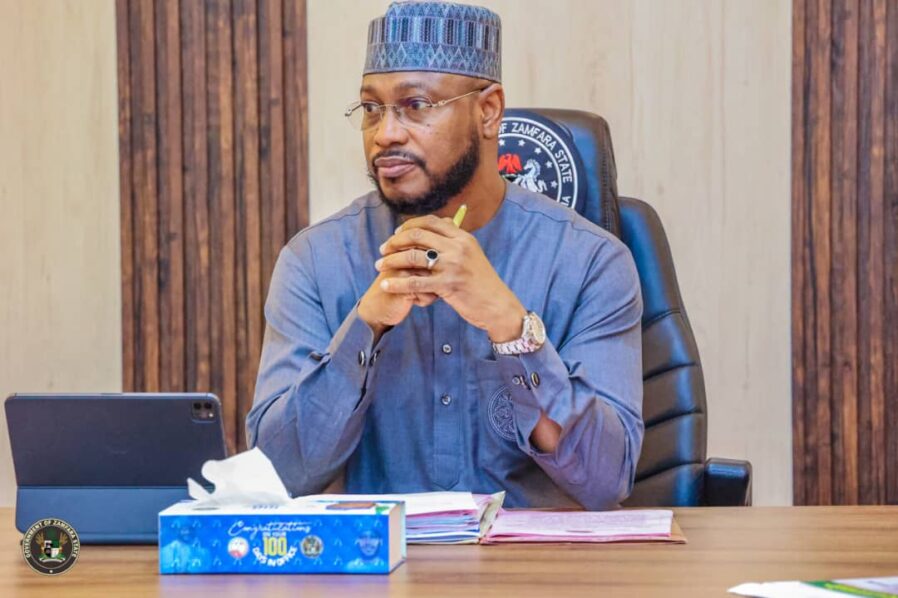
The Hope Arewa Development Initiative (HADI) has expressed its support for Governor Dauda Lawal’s decision to ban illegal mining activities in Zamfara State. Led by Dr. Adamu Muhammed, the group also commended the recruitment of over 4,000 civilians for a joint task force, highlighting the governor’s commitment to community-based solutions to the issues of banditry, kidnapping, and terrorism in the state.
In a statement on Monday, the group argued that these approaches reflect the belief that lasting peace and stability can only be achieved with the active participation and support of local communities.
“To put it differently, the Governor has donated brand new operational vehicles to all Police Divisional Headquarters and their substations as a way of prioritising the safety of lives and properties,” the statement noted.
“Day and night, Governor Lawal supports security agencies in the fight to end insecurity. The public is aware of the significant successes recorded in recent days. The fight against bandits in Zamfara is a phase, and it shall be crushed.”
HADI was responding to claims by the Comrade Emmanuel Onwubiko-led Human Rights Writers Association (HURIWA), which challenged Governor Lawal’s allegations that his predecessor, the current Minister of State for Defence, Bello Matawalle, was among the sponsors of banditry and kidnapping in the state. HURIWA dismissed the claims as unsubstantiated and without merit.
HADI questioned why HURIWA failed to mention the ban on illegal mining activities, which directly addresses one of the root causes of insecurity in the northern region.
The group argued that by recognising the link between illegal mining and banditry and committing to collaborate with the federal government to address high-profile bandits, Governor Lawal has shown a clear understanding of the complex challenges facing Zamfara.
HADI also expressed concern over HURIWA’s praise for Matawalle’s achievements during his tenure as governor, raising questions about the organisation’s objectivity and independence.
“The assertion that Matawalle ‘remains loyal to President Bola Tinubu and has the full trust of the administration’ is particularly troubling. Since when has loyalty to a sitting president become a metric by which human rights organisations judge public officials? This statement alone suggests that HURIWA has strayed far from its mandate and is instead operating as a political public relations firm,” the statement noted.
HADI called on HURIWA to reconsider its position and approach. “A true human rights organisation should investigate all allegations of human rights abuses, corruption, and bad governance thoroughly and impartially, regardless of who makes the accusations or who stands accused.”
HADI urged HURIWA to avoid becoming entangled in partisan politics and to maintain its independence and credibility by holding all parties to the same high standards. “We urge the organisation to return to its roots as a defender of human rights and to focus on the real challenges facing the people of Zamfara State and the wider North.”
These challenges include the ongoing security crisis, the need for economic development and job creation, the importance of improving education and healthcare, and the critical necessity of ensuring transparent and accountable governance at all levels.
Since taking office, Governor Lawal has made significant efforts to address the many challenges facing Zamfara State. He has declared a state of emergency in education, recognising its crucial role in breaking the cycle of poverty, violence, and insecurity.
“The construction of modern Almajiri schools in all three senatorial districts is a major step towards providing education to some of the most vulnerable members of society. Additionally, the renovation of the College of Agriculture and Technology in Bakura—whose structures became obsolete two decades after its re-establishment—includes refurbishing and equipping the Admin Block, Agricultural Laboratory, Lecture Hall, and Male and Female Hostels, along with the construction of a laundry facility and the rehabilitation of the college’s water system.”






